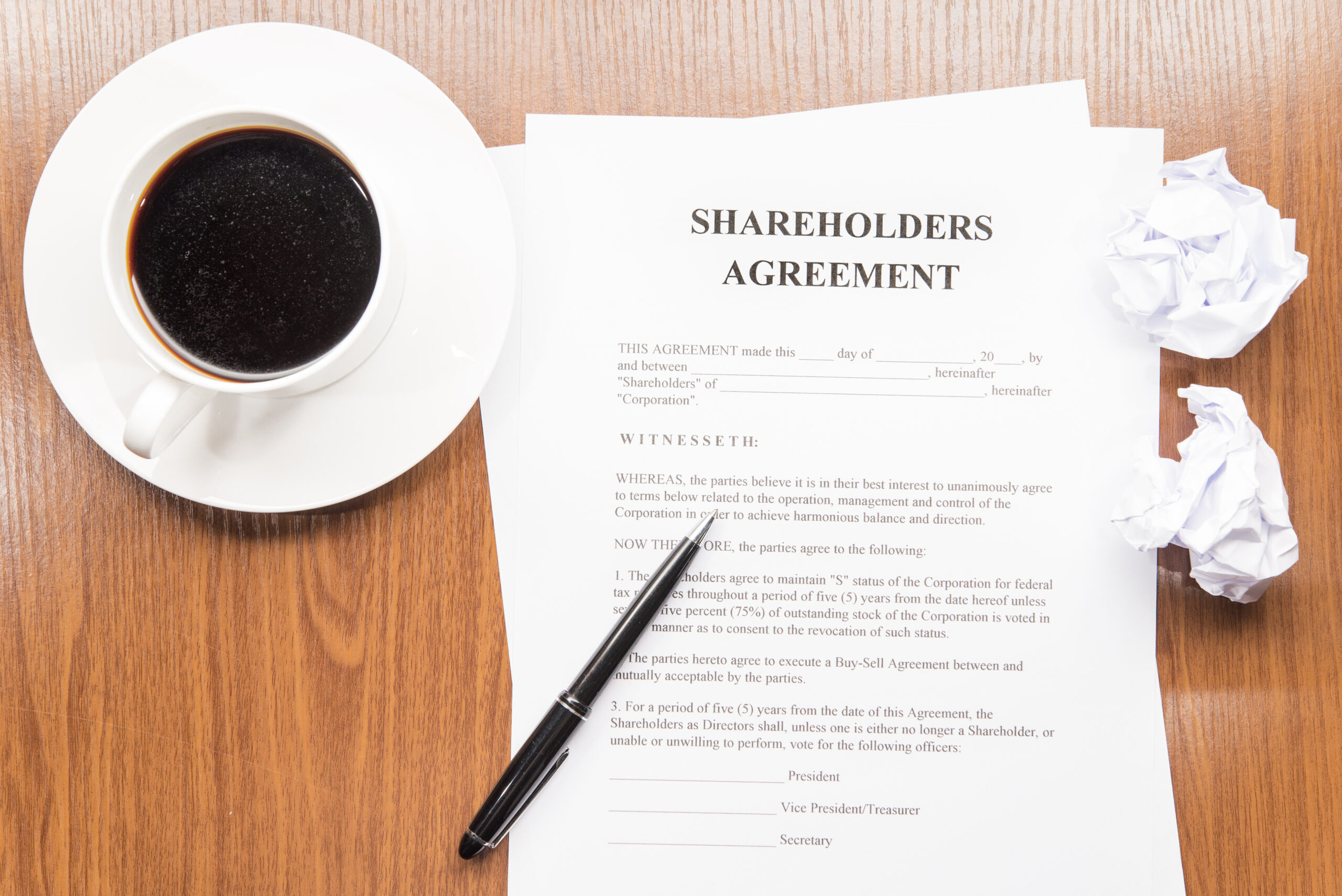Companies often are formed through the cooperation of two founders, where each holds an equal 50% shares in the company’s capital. Such a “balance of power” prevents either founder from making decisions independently. However, this can lead to paralysis when founders cannot agree.
Potential consequences include a neglect of legal obligation, loss of the company’s reputation and clients.

The Founders’ Agreement – the key to clear rules.
Let’s sign the founder’s Agreement. This agreement can address issues not covered by the company’s articles of association. It can be signed at any stage of cooperation, though it’s advisable to do so before formally establishing the company. The founder’s agreement can foresee various potentially contentious situations.
Drafting this agreement is a good opportunity to set mutual expectations regarding the founders’ relationship, the company’s business strategy, work principles, reasons and timing for exiting the company and methods for resolving corporate disputes.
Incorporating legal mechanisms can “compel” founders to adhere to the agreement’s provisions.
The founder’s agreement can include provisions regulating situations such as:
- Lack of funds for the company’s ongoing expenses.
- Reasons for dissolving the company.
- Events giving one founder the right to buy the other’s shares at a specified price (buyout options).
- The right of one founder to buy the other’s shares in case of intent to sell to another party (right of first refusal).
- Rights associated with one founder’s exit from the company, such as a tag-along right and drag-along right.
- Restrictions on transferring shares for a specified period (lock-up).
- Who holds the economic rights to work created by founders within the company’s framework.
- The management board.
- Profit distribution rules.
- Non-compete clause preventing founders from engaging in competitive activities against the company.
- Consent for admitting investors to the company (further financing).
Texas shoot-out
The “texas shoot-out” clause in the founder’s agreement allows any founder to set the price and offer to sell shares to the other founder. The other founder must either accept the offer or sell his shares under the same conditions. This prevent situations where one founder blocks the company’s action.
Submitting a shares sale offer at too high price might encourage the other founder to sell his shares under the same conditions.
The founder request for judicial dissolution
Each founder can, for valid reasons, request the court to dissolve the company. A balance of power that results in an inability to pass and resolution might be recognized by the court as a valid reasons to dissolve the company. However, much depends on the circumstances and the provision of the company’s articles of association. The inability to appoint necessary corporate bodies may also be deemed as a valid reason for a company’s dissolution.
Maybe a third shareholder ?
Choosing founders is crucial for the company’s success. Often, two founders have similar skills and focus on technical aspects. It might be worth considering a third shareholder who can handle market analysis, marketing, sales, or bureaucratic matters. A third shareholder can help balance the power and facilitate majority decision-making. Shareholders collectivity holding a majority shares also have more legal mechanism for making a strategic decision.
A well-prepared founders agreement and appropriate company structure can aid in smooth management and development.


